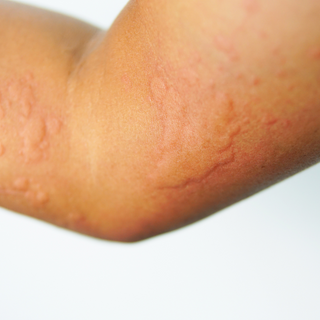No two skins are ever the same. While one person may be able to stay out hours in the sun, another person may burn quickly in the first twenty minutes. While some skin lacks freckles and blemishes, another may have acne and scarring.
Sensitive skin is a problem for a lot of people and it makes reaching your skincare goals more tedious and troublesome, because it means that you have to take extra precautions so as to not irritate your skin. This may mean changing your skincare routine to weed out overly abrasive techniques, swapping out skincare products for gentler options, and staying away from harsh chemicals or even extended sun exposure.
Tip #1: Avoid Hot Showers
While some people are okay with lukewarm waters, others love to turn up the heat in the shower. For people with sensitive skin though, I have some bad news: hot showers and baths can inflame the skin, causing redness, itching, and even peeling — similar to a sunburn. Excessively hot water can also can disrupt your skin's natural oils and proteins that keep skin healthy and moisturized. This leads to dry skin that becomes irritated even more. In addition to this, irritated skin can become incredibly itchy and inflamed, causing redness that persists throughout your day.
The solution is pretty simple: always shoot for lukewarm water over piping hot. And if you do decide to turn up the heat, be patient with your skin and be sure to add moisturizer.
Tip #2: Moisturize More
Speaking of moisturizing, when it comes to those with sensitive skin, moisturizer just absolutely can't be skipped.
A moisturizer improves hydration, which allows the skin to be able to carry essential nutrients to the cells. Hydration also improves skin elasticity, keeps skin plump, and battles dryness.
Drinking water is also something that can't be overlooked. When your body itself is hydrated, organ functions, skin conditions, and overall health improves.
Tip #3: Avoid Prolonged Sun Exposure
The sun is the #1 enemy of skin. Over time and with prolonged exposure, UVA and UVB rays penetrate deeply into the skin's layers and begin to break down cell structure, resulting in loss of collagen, an influx of wrinkles or fine lines, and even skin blemishes and possible forms of cancer.
Aside from that, people with sensitive skin should not expose themselves to excessive sunlight. Sensitive skin has a weaker structure and is less resilient to outside factors, which means you may need to lather up on sunscreen even for short outings where you'll be exposed to the sun's rays.
Want to know more about SPF and how sun exposure actually affects the skin? Check out this blog post.
Tip #4: Choose Makeup and Cosmetics Carefully
Sensitive skin is going to be a tad more temperamental when it comes to skincare products. If products were made with harsh chemicals, you may experience breakouts, rashes, itchiness, or irritation. Inspecting for non-toxic, gentle ingredients is paramount to your skin's health. Keep in mind some makeups may irritate sensitive skin as well; the most common skin irritants in cosmetics being sulfates, petroleum, fragrance, alpha hydroxy acid, glycolic acid, and lactic acid, all of which can be used in foundations.
Tip #5: Choose Gentle Exfoliates
There's an age-old myth that goes a little something like this: if you have sensitive skin, you should absolutely not exfoliate.
Sounds correct in theory, after all, exfoliation is a slightly abrasive method for sloughing off dead skin cells prior to cleansing. Except this is something that all skin needs. Dead skin cells can pile up on the surface of skin, clogging pores and causing blackheads, acne, and a buildup of sebum (oil).
That being said, exfoliation should be done at least once a week, even for people with sensitive skin. The catch is that you just need to find gentle exfoliates or exfoliates that contain BHAs. Primarily used to ease acne and smooth out sun-damaged skin, BHAs are oil-soluble and gentle enough for even sensitive skin.
The Takeaway
Sensitive skin doesn't have to be a total burden. There are innovative ways to work around your skin's elevated needs. Once you've diagnosed triggers and techniques or products/ingredients that inflame or irritate your skin, dig deeper to do research on exactly why your skin is reacting the way that it is. Again, the more information your arm yourself with, the better the outcome for you and your skin in the long run. Know your skin and body—don't rush skincare for the sake of beauty and always go at your skin's pace. If your skin is showing signs of irritation after being out in the sunlight, grab a hat or go inside. If it is becoming itchy and red after using a trending beauty product, into the trash it goes. Be patient with yourself and eventually you'll see more remarkable results than if you hadn't in the first place.
Thank you Amber Babies for tuning into yet another blog post! Feel free to leave comments and questions and don't forget to visit me on TikTok, YouTube, and as well as on IG, @ginamberx, where I go over remarkably effective skincare tips, trends, and topics!
